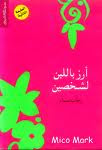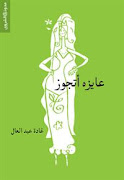Kuwaiti novelist Laila Al-Othman
A couple weeks back, Kuwaiti novelist Laila al-Othman found an appreciative audience when she attacked a new strain of Saudi literature, penned by women, for its “increasingly sexual content.”
According to the Arab news-translation service Meedan:
Al-Othman told a seminar in Saudi Arabia “the trend towards increasing sexual content can be understood by the love of fame and the fact that publishing houses race to have new female writers who aspire to make hasty career jumps.”
Al-Othman apparently pointed to Wardah Abdel-Malik’s Al-Awbah (The Return) and Saba al-Harz’s Al-Akharoun (The Others), although she surely also must’ve had in mind Rajaa Alsanea’s very popular Girls of Riyadh.
Apparently, several other Saudi women novelists have agreed with Al-Othman. Meedan floated these unattributed quotes:
…”the new female writers who have no real talent opt for eroticism.”
…”one would be ashamed to read those women’s novels due to the flagrant sexual content.”
Indeed, as The National reports, a new genre of Saudi fiction was born after Girls of Riyadh, and these young female (and male) writers are eager to break Saudi taboos.
But certainly taboo-busting—while not so interesting if done primarily to titillate Western readers—is an important part of serious literature.
Al-Harz’s The Others, which I haven’t read, has been called more “literary” than Girls of Riyadh. Reviews in The National and elsewhere seem to have fallen off the Internet. So, from the somewhat unforgiving blog Instants of Insanity:
“In all, this [The Others] is a pretty decent novel. I guess it is part of the new ‘scandalous’ novels written by female writers; a genre (if we can call it that) popularized by Riyadh Girls, which sucked…. “
Other reviews of Girls of Riyadh have not been quite so harsh. Many Western readers, I suppose, were titillated by this chance to look “behind the veil,” “under the covers,” and so on.
And yes, all this “looking behind the veil” makes my skin crawl. However, it’s difficult to disentangle the Arab criticisms of this new subgenre. Is the thrust of the al-Othman-inspired criticisms that erotic tropes are being exploited merely to sell novels, and that this panders to (and reinforces) Western views of Arab women? Or is the criticism that sexual content—in itself—is shameful?
Back to Basics: Virtually Islamic blog
6 years ago



BlackBerry Pin Female Prostitutes And Mobile Phone Update Every Day
ReplyDeleteFacebook Accounts Sex Girl Calls Home
World's Largest Vagina Update Every Day
Twitter account Whore Girl Around the World